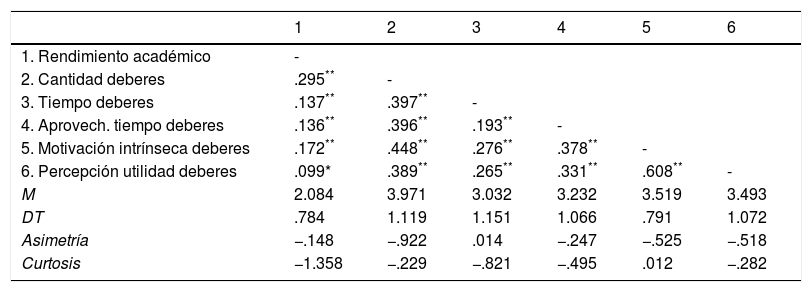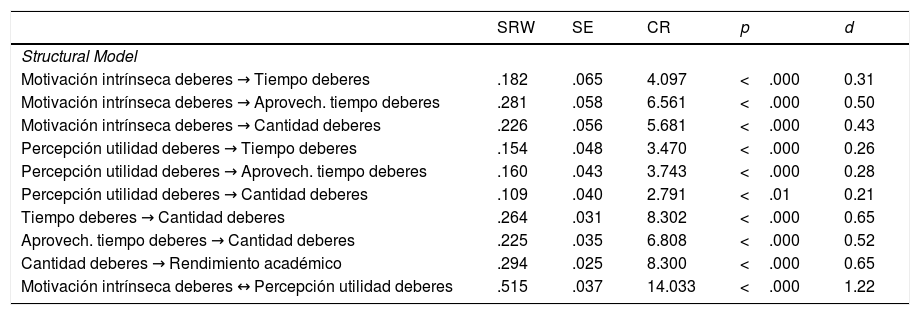El valor que se asigna a las tareas, incluido el valor de utilidad, está detrás de las elecciones de los estudiantes y de su grado de compromiso, esfuerzo y persistencia con las actividades de aprendizaje, y acaba explicando, finalmente, el rendimiento académico. Con el presente estudio se trata de comprobar en qué medida el valor y la percepción de utilidad atribuidos a los deberes podría ser un predictor relevante del compromiso ejecutivo del estudiante con sus deberes. Con una muestra de 730 estudiantes de educación secundaria y a través del análisis de senderos (path model) los resultados obtenidos, en términos generales, confirman la hipótesis general en base a la que se construyó el modelo. Así, la motivación intrínseca y la utilidad percibida de los deberes se encuentran significativa y positivamente asociados al compromiso del estudiante con los mismos y este compromiso se relaciona también positivamente con el rendimiento académico. Se constata que la cantidad de varianza que se explica del rendimiento académico por parte de las cinco variables relacionadas con los deberes es solo de un 8.6%. La aportación principal del estudio es que cuando el estudiante se encuentra interesado en trabajar sobre los deberes y confía en que estos sean útiles a tal fin su implicación con los deberes será más alta. El propósito de aprender y la percepción de utilidad se convierten en factores explicativos de la calidad del compromiso del estudiante con los deberes.
The value assigned to, including the utility value, is behind the students’ choices and their degree of engagement, effort and persistence with learning activities and, finally, explains academic achievement. The present study attempts to verify to what extent the value and the perception of utility attributed to homework could be a relevant predictor of the student's behavioral engagement. With a sample of 730 Secondary Education students and through the path analysis, the results obtained, in general terms, confirm the general hypothesis based on which the model was constructed. Thus, intrinsic motivation and the perceived usefulness of homework are significantly and positively associated with the student's engagement to them and this engagement is also positively related to academic achievement. It is found that the amount of variance that is explained of the academic achievement by the five variables related to homework is only 8.6%. The main contribution of the study is that when the student is interested in working on homework and trusts that they are useful for this purpose, their involvement with homework will be higher. The purpose of learning and the perception of utility become explanatory factors of the quality of the student's engagement to homework.
Artículo
Comprando el artículo el PDF del mismo podrá ser descargado
Precio 19,34 €
Comprar ahora










